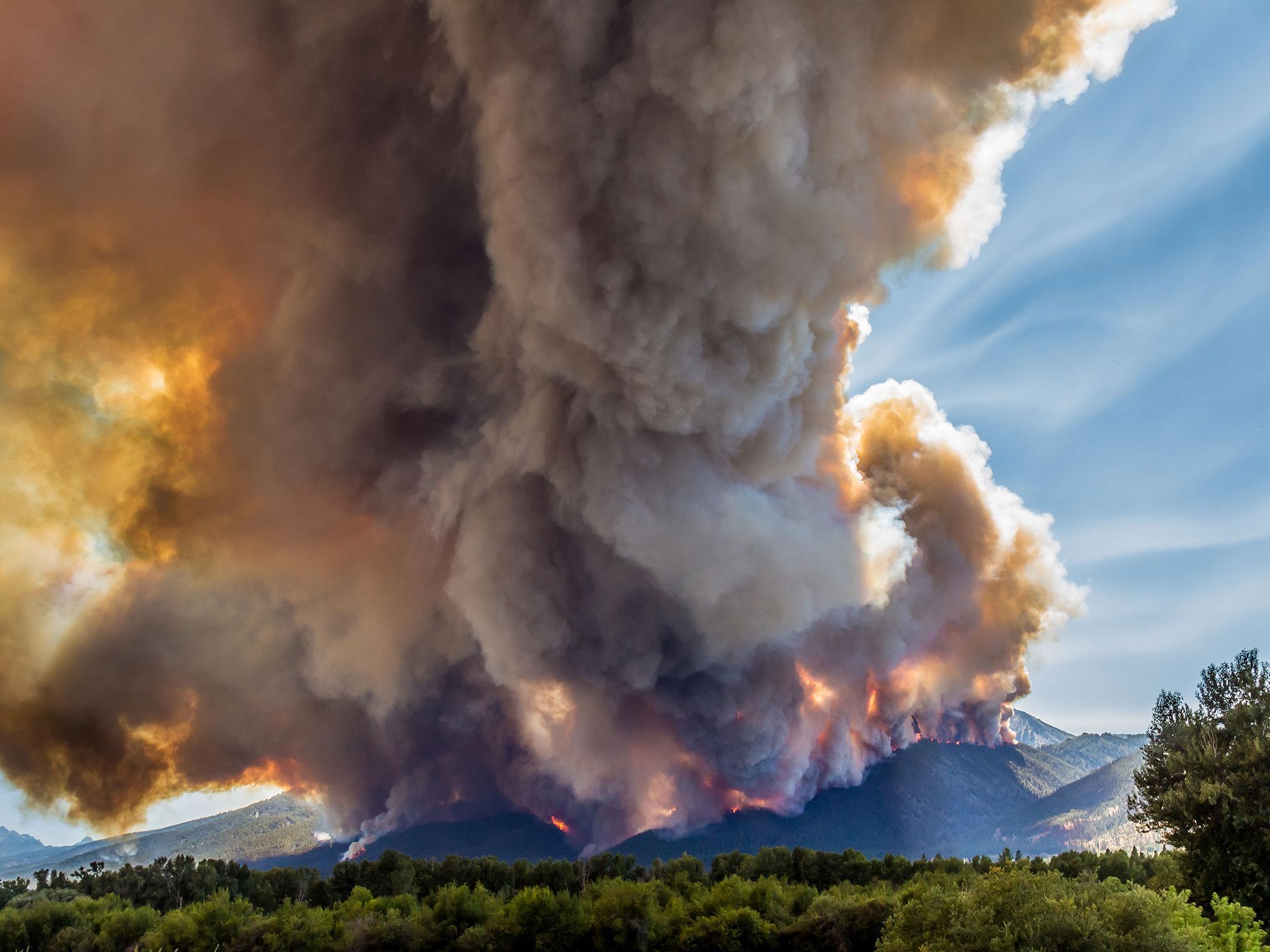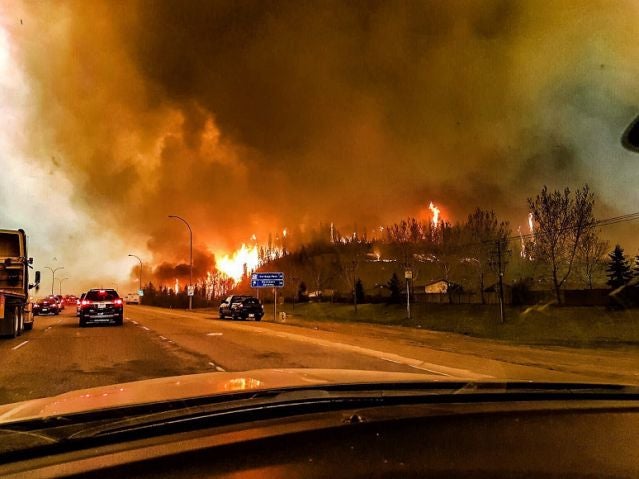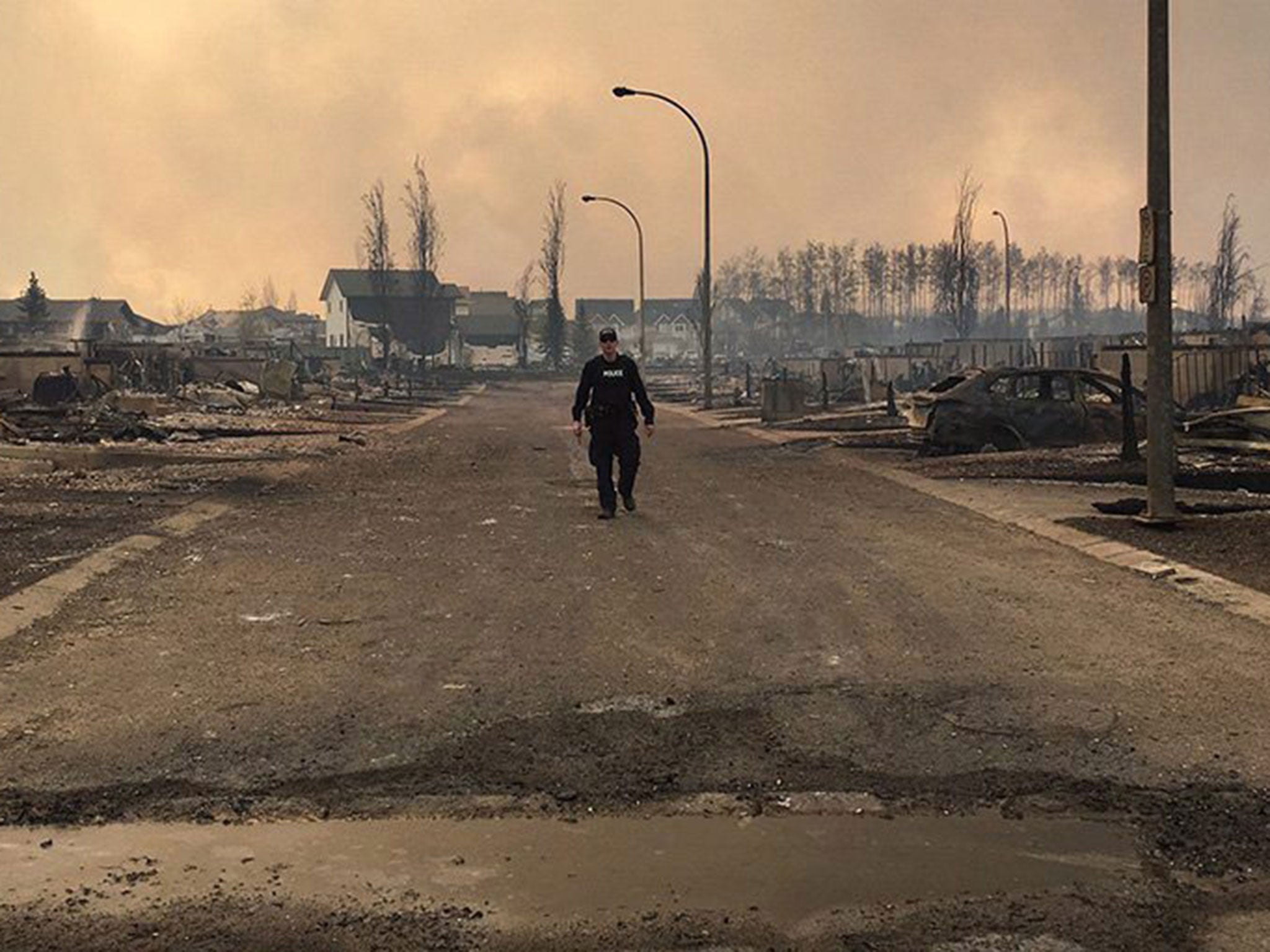Global warming doubles size of forest fires in US West, study finds
Forests covering an area the same size as Denmark have been lost to fires caused by climate change in the US West over the past 30 years, researchers say

Global warming has caused the area affected by forest fires in the western United States to double over the last 30 years – and the problem will continue to get worse until the trees start to run out, according to new research.
Higher air temperatures dry out vegetation, making it more prone to combust, as witnessed with increasing ferocity in states like California and Oregon.
While some parts of the world will get wetter as the climate warms, fires have been increasing in places like the Amazon, Indonesia and Canada's boreal forests.

Climate scientists had predicted wildfires would increase in places, but the new study, funded in part by Nasa, is one of the first to quantify the effect.
One of the researchers, Professor Park Williams, a bio-climatologist at Columbia University, said: “No matter how hard we try, the fires are going to keep getting bigger, and the reason is really clear.
“Climate is really running the show in terms of what burns. We should be getting ready for bigger fire years than those familiar to previous generations.”
An extra 4.2 million hectares of forest fires – about 16,000 square miles, the same area as Denmark – were estimated to have been caused by human-induced climate change between 1984 and 2015, according to a paper in the journal Proceedings of the National Academy of Sciences.
This increase nearly doubled the area that would have burned if the temperature had not risen, the researchers found.
Eventually the fires will be so extreme that the remaining forests are too fragmented for flames to spread easily between them.
“There's no hint we're even getting close to that yet. I'd expect increases to proceed exponentially for at least the next few decades,” Professor Williams said.
While the world’s average temperature has risen by one degree Celsius since pre-industrial times, the increase within forests in the US West has been sharper. Since 1970, temperatures have gone up there by 1.5C – and this increase is expected to continue.
Warmer air can hold more moisture, so water is sucked out of plants, dead vegetation and the soil, creating tinder dry conditions.
Ironically firefighting is another reason for the rise in forest fires. When a blaze is put out, this can have the effect of simply saving dry fuel for another day and a bigger fire.
Last year, the US Government alone spent more than $2.1 billion (£1.7bn) fighting fires.
The researchers said their findings should be taken on board by people living in forested areas.
“It means getting out of fire's way,” he said. “I’d definitely be worried about living in a forested area with only one road in and one road out," Professor Williams said.
In May this year, a firestorm devastated parts of Fort McMurray in Alberta, Canada, and the surrounding area, forcing 80,000 people to flee their homes.
Experts said a combination of dry weather, less snow due to melting and record warm temperatures led to conditions that created “perfect kindling”.

Will Ashley-Cantello, chief adviser on forests at WWF-UK, said the research underlined the need to stop using fossil fuels and cutting down forests.
"Forests have always suffered and recovered from fires but it’s clear that these fires are becoming bigger and more common around the world as a result of human activity," he said.
"We've also seen high levels of fire in the Amazon this year, and those in Indonesia are infamous.
"Unless we act this trend will continue, and could act with climate change to form a feedback loop: forest fires feeds climate change, which means more fires.
"We must reduce our climate warming emissions worldwide and mimic natural processes in the way we manage forests. The age of fossil fuels and deforestation has to end now.”
According to Forest Research, an arm of the UK Forestry Commission, the UK “suffers relatively little from forest fires”.
“Nevertheless, they do occur, especially in areas where grass pasture, heathland occur in close proximity,” it says on its website.
“Fire is almost certain to become an increasing factor affecting the condition and longevity of some woods and forest areas in sensitive areas, and climate change is likely to be a contributory factor.”
Join our commenting forum
Join thought-provoking conversations, follow other Independent readers and see their replies
Comments
Bookmark popover
Removed from bookmarks